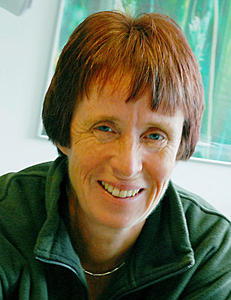Europe
December 9, 2015
Researchers stressed the importance of coordinating Integrated Pest Management research during a special session at October’s Ecophyto colloquium in Paris, France. The session, dedicated to the importance and added value of coordinating IPM-related research, attracted around 200 people, including scientists, policy makers and farmers, who listened to three talks and participated in a round table discussion
Antoine Messéan, coordinator of ENDURE and the C-IPM ERA-Net, gave an overview of the latter. He highlighted how this networking of funders is trying to overcome the fragmentation of IPM research among EU Member States and associated countries by pooling resources and working together on common priorities. He reported that coordination of IPM research and development is ongoing both through the networking of funders (C-IPM) and through the networking of researchers and advisers (ENDURE).
 Two other researchers closely involved with ENDURE presented the results of ongoing European research collaboration. Lise Nistrup Joergensen (pictured right), from Aarhus University, Denmark, discussed the European networks of scientists and other specialists working on fungal diseases in wheat and potato late blight. She emphasised how this networking, launched during the early years of ENDURE, has led to the development of two important platforms - EuroWheat and EuroBlight - significantly facilitating IPM research at the European level.
Two other researchers closely involved with ENDURE presented the results of ongoing European research collaboration. Lise Nistrup Joergensen (pictured right), from Aarhus University, Denmark, discussed the European networks of scientists and other specialists working on fungal diseases in wheat and potato late blight. She emphasised how this networking, launched during the early years of ENDURE, has led to the development of two important platforms - EuroWheat and EuroBlight - significantly facilitating IPM research at the European level.
Silke Dachbrodt-Saaydeh,from JKI, Germany, presented the ongoing networking of long-term IPM field trials across Europe and highlighted how such an approach is important to assess the effectiveness of IPM under different pedo-climatic conditions. In particular, she demonstrated the added value of sharing and coordinating experiments at the EU level with examples from ENDURE, PURE and long-term meta-analysis.
This article is a shorter version of the one which first appeared on the C-IPM website. You can read the complete article here:
Coordinating IPM research in Europe is imperative
By Jay Ram Lamichhane, INRA
A session on the importance and added value of coordination of IPM-related research programs at the European level was organized during the Ecophyto colloquium which took place in Paris 13-14 October 2015.
Around 200 people, including scientists, policy makers and farmers, attended this session. Three talks were given during the session and were followed by a roundtable discussion.
Antoine Messéan, C-IPM coordinator and member of the Ecophyto expert group, gave an overview of the ERA-NET C-IPM. He highlighted how this networking of funders is trying to overcome IPM research fragmentation among the EU Member States/associated countries by pooling the resources and working together on topics of common priorities. He highlighted that coordination of IPM R & D is ongoing both through the networking of funders (C-IPM) as well as that of researchers and advisors (ENDURE).
Two other two European scientists (Lise Nistrup Joergensen, Aarhus University, Denmark, and Silke Dachbrodt-Saaydeh, JKI, Germany), actively involved in the trans-national networking activities, presented results of some ongoing European research collaboration.
More specifically, Lise Nistrup Joergensen presented a European network of scientists and other specialists working on fungal diseases of wheat and potato late blight. She emphasized how this networking — begun at the time of ENDURE establishment in 2008 — has led to the development of two important platforms: Eurowheat and Euroblight thereby significantly facilitating IPM research on these pathosystems at the European level.
Silke Dachbrodt-Saaydeh presented the ongoing networking of IPM long-term field trials across Europe and highlighted how such an approach is important to assess the effectiveness of IPM under different pedo-climatic conditions across Europe. In particular, she showed the added value of sharing/coordinating experiments at the EU level illustrated by general examples from ENDURE, PURE and long term meta-analysis.
The three presentations were followed by a round-table discussion that involved a face to face interaction during which the three scientists, together with Dominique Potier — a member of the parliament and author of a report on renewal of the French National Action Plan — and Cyril Kao — Head of the Department of Research, Innovation and International Cooperation at the Ministry of Agriculture — replied to the concerns of the participants.
The member of the parliament affirmed that he would strongly support the commitment from France to foster such a networking on IPM through the continuation of the ERA-Net. Answering the question from the participants as to whether Denmark and Germany also have the same perception of the importance of continuing such a transnational collaboration, the scientists from Denmark and Germany confirmed that similar issues are discussed in their respective countries and there is a strong interest in transnational collaboration of IPM R & D at the EU level.